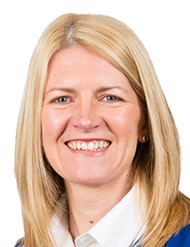2nd Gender Pay Gap Reporting Conference for Employers: Gender - Ethnicity - Disability
Danubius Hotel Regents Park , 18 Lodge Road, St. John's Wood, London NW8 7JTTHIS EVENT HAS NOW PASSED. CLICK HERE TO SEE FULL LIST OF UPCOMING EVENTS ON OUR HOMEPAGE
"We urge employers to get under the headlines of the pay gaps to make sustainable change happen, challenge any misconceptions that the gaps are entirely out of employers’ control and shun quick fixes that will only paper over the cracks." - CIPD
Following the legislation of gender pay gap reporting in April 2017, public, private and voluntary sector employers are required to demonstrate "unprecedented transparency" (Chartered Management Institute). With often damning revelations coming into the public light of inexplicable gender pay gaps, there is mounting pressure for employers to publish their ethnicity and disability pay gaps as well. Far from just being a moral issue, addressing these gaps is a commercial necessity.
Registration fee: £395 plus VAT per delegate
Post-2019 reporting deadline is when the reporting really matters, and companies’ reports will come under close public scrutiny. They need to demonstrate a real commitment to reducing pay gaps in the medium- and long-term through practical strategies. The government are also consulting on the probability of ethnicity and disability reporting.
Business benefits include:
- Attracting and retaining diverse talent
- Reputation and brand recognition
- Building employee trust
- Employee engagement and buy-in to implementing medium- and long-term solutions
Feedback from last year's conference
"Highly recommend" - Royal College of Physicians
"Real focus on gender pay gap was excellent" - Homes for Haringey
"Very good" - Telford Homes Plc
"Very helpful and eye opening" - Greater Manchester Combined Authority
Which functions will benefit from attending
- HR, Equality and Diversity, Operations, Policy, Strategy, Company Secretaries, Legal and Advisory, Trade Unions, Recruitment
Hear from











Schedule
Registration and coffee
CHAIR'S WELCOME AND OPENING REMARKS



Caroline Waters OBE
Deputy Chair , The Equality and Human Rights Commission
Currently Deputy Chair of the Equality and Human Rights Commission, Vice President of Carers UK, Trustee of the RSPCA and Founder and CEO of CW Consulting Box, Caroline Waters was also Director of People and Policy at BT for which she was awarded HR Director of the Year 2009 in the HR Excellence Awards. Caroline has a distinguished record on equality, inclusion, and human resources and routinely works with and advises policy makers. An experienced Non-Executive Director she is a Director of Roffey Park, Project Fortis and Wilson James and a member of the Whole Education Board. Caroline was recently listed in the top 100 Disability Power List 2018 and voted one of the most influential HR practitioners of the last decade by HR Magazine Excellence Awards 2015 and the HR Movers and shapers of 2018.
OPENING ADDRESS



Caroline Waters OBE
Deputy Chair , The Equality and Human Rights Commission
Currently Deputy Chair of the Equality and Human Rights Commission, Vice President of Carers UK, Trustee of the RSPCA and Founder and CEO of CW Consulting Box, Caroline Waters was also Director of People and Policy at BT for which she was awarded HR Director of the Year 2009 in the HR Excellence Awards. Caroline has a distinguished record on equality, inclusion, and human resources and routinely works with and advises policy makers. An experienced Non-Executive Director she is a Director of Roffey Park, Project Fortis and Wilson James and a member of the Whole Education Board. Caroline was recently listed in the top 100 Disability Power List 2018 and voted one of the most influential HR practitioners of the last decade by HR Magazine Excellence Awards 2015 and the HR Movers and shapers of 2018.
KEYNOTE ADDRESS: 12 MONTHS ON – WHAT DO THE FIGURES REALLY TELL US?



Rosie Campbell
Director , Global Institute for Women's Leadership - King's College London
Rosie Campbell is the Director of the Global Institute for Women's Leadership and Professor of Politics at King's College London. Rosie held positions at Birkbeck and UCL before joining King’s in 2018. She has recently written on barriers to participation in politics, gendered patterns of support for the populist radical right and what voters want from their elected representatives. Her publications cover the subjects of voting behaviour, public opinion, the politics of diversity and political recruitment. She is the principle investigator of the ESRC funded Representative Audit of Britain, which surveyed all candidates standing in the 2015 and 2017 British General Elections, and co-investigator of a Leverhulme funded study of British parliamentary candidates and MPs from 1945-2015 www.parliamentarycandidates.org. She has co-authored reports for the Fawcett Society, The Expert Panel on Electoral Reform for the Welsh Assembly, the EHRC, BBC Radio Four’s Woman’s Hour, The Electoral Commission, The Fabian Women’s Network and The Hansard Society. Rosie has been recently interviewed by The Briefing Room, the Today Programme, Westminister Hour, Woman’s Hour, Newsnight and Good Morning Britain. Rosie has presented four episodes of Radio Four’s Analysis on How Voters Decide, how we judge politicians’ Authenticity, tearing up the politics textbooks and the Conservative party’s problem with BAME voters.
- Interpreting the figures for a realistic overview
- What tangible progress has been made?
- Recognising the business case for diverse workforces
- Pushing the agenda for diversity in leadership
- Skillset challenges: what now for UK plc?
LEGAL UPDATE AND ANALYSIS



Helen Corden
Partner , Pinsent Masons LLP
Helen is a Partner in the Employment Team of Pinsent Masons LLP. With particular expertise in diversity matters, Helen has been at the forefront of advising clients on the Gender Pay Gap Regulations and has been quoted in the press and asked to speak at HR conferences on this subject. Helen has also led on Pinsent Masons' own reporting strategy, advising on reporting additional data on a voluntary basis (including ethnicity pay gaps) and how to address the gap. This has given her an added insight into the challenges that businesses face in this area. Helen has worked with numerous clients, including PLC’s and Global Companies, on the conducting of confidential legally privileged Equal Pay Reviews to enable them to contextualise any Gender Pay Gap and formulate a narrative to accompany their reporting requirements. In conjunction with Pinsent Masons’ diversity and inclusion consultancy business, Brook Graham, she has also helped clients develop their diversity strategy. Helen is recognised for her commercial, pragmatic and robust advice and is viewed as an extension to many of our client’s Legal and HR teams.
2019 Reporting:
- Key Takeaways
- Sector/Industry Analysis
- What conclusions can be drawn from the published reports
Reasons for the Gaps: Societal Analysis:
- Women’s ‘choices’?
- Historic Trends
- Culture
- Promoting shared parental leave/Flexible working at all levels
What’s on the Horizon:
- Ethnicity Pay Gap Reporting
- Disability/Sexual Orientation Pay Gap Reporting
- CEO Pay Ratio Reporting
- Wider “Fair Pay” Agenda
Coffee and networking
PAY GAP REPORTING AND CULTURAL CHANGE



Kate Headley
Director of Consulting , The Clear Company
Kate is a fully qualified HR professional who whose early career was in the private sector (Marks & Spencer) and the public sector (Manchester City Council). She has been advising organisations on diversity and inclusive talent management for nearly twenty years; and is best known for her passion and expertise in the development of inclusive recruitment and talent management processes across the employee lifecycle. Kate has specific expertise and a successful track record in engaging leadership with the business case for strategic change, then delivering it through the supportive management of stakeholders implementing new policy, processes and behaviours to support inclusive talent acquisition and management. She founded the Clear Company in 2005 and it has grown to become the recognised leader of inclusive recruitment and talent management insight, training and technology; offering an audit process that is second to none, accredited inclusive hiring training and Clear Assured, an online global Inclusion Standard. Kate is a key member of The Civil Service, Diverse Leadership Taskforce, and Founder Chair of the Recruitment Industry Disability Initiative, a national programme that works to remove barriers for disabled job seekers by providing recruiters and employers with the information and tools they need to successfully become Disability Confident. Specialties: Recruitment and talent management best practice strategy and audit; ensuring inclusive HR process and practice; recruitment and retention of disabled talent; recruitment and retention of women at senior level.
- The purpose behind pay gap reporting
- Identifying the real root causes
- Pay Equality as part of a broader inclusion strategy
- What needs to change – the practical realities
CASE STUDY: REPORTING DISABILITY, SEXUALITY AND ETHNICITY



Patrick Alleyne
Human Resources Manager , Greater London Authority
Patrick is an experienced Human Resources Manager/HR Business Partner with a successful track record of working in strategic regional government, university, and hospitality sectors. Patrick’s early career was spent in the hospitality industry managing catering establishments. He moved into the world of human resources initially as a training officer delivering training for front line staff and running management development programmes. Following a promotion, he became a Regional Personnel Manager in the north of England before moving back into training in the retail motor industry. Patrick returned to the hospitality industry as a Personnel Manager before moving into higher education just at the time the polytechnics were permitted to become universities. He spent 9 years in higher education with the final four years as Head of Personnel at the University of Bedfordshire. In 2000 he moved to the newly created Greater London Authority as a Human Resources Manager. He helped to set up the HR department and was instrumental in establishing the terms and conditions of employment and employment policies for the GLA. In 2005 he transformed the GLA’s pay and grading system. Patrick has always had a keen eye for data and has published employee data at the GLA since 2001. In 2016, ahead of the gender pay reporting regime Patrick produced and published the GLA’s first gender pay gap report. He also coordinated the publication of the gender pay gap reports for TfL, Met Police, and London Fire Brigade. Patrick also produced the GLA’s first ethnicity pay gap report in 2017 and has worked with the EHRC and CIPD on some of the thinking around ethnicity pay gap reporting. Patrick was seconded to work with Gapsquare in a business development role. Gapsquare Pro is a software application enabling organisations to deliver their gender/ethnicity pay gaps in four easy steps.
- Why we voluntarily expanded our pay gap reporting
- Findings, analysis and conclusions
- Internal and external messages
- Future strategies: key aims and objectives
Lunch and networking
CASE STUDY: TAKING AN EVIDENCE BASED APPROACH TO TACKLING DIFFERENCES IN STAFF EXPERIENCE ACROSS THE NHS (FOCUSSING ON GENDER, DISABILITY AND RACE)



Paul Deemer
Head of Diversity and Inclusion , NHS Employers
Paul has been a HR professional for over 30 years. He has worked in local government, the voluntary sector and the health service – with particular experience in the fields of recruitment, employee relations, employment law and diversity. It was whilst working for the charity Barnardo’s that he took on the role of national equality and diversity manager, further utilising the experience and knowledge gained in this role when he was seconded into the Department of Health and Social Care’s Equality and Diversity Team in 2000 to help them develop their national strategy in this area. Paul currently works for NHS Employers – which represents and supports NHS trusts across England – and is helping NHS organisations to embed diversity and inclusion good practice across the NHS.
- Aligning the four elements of evidence-based practice – scientific evidence, organisational data, stakeholder views and practitioner expertise
- Leveraging the power of networks
- Utilising demographic data alongside staff experience data
PANEL DEBATE GENDER, ETHNICITY AND DISABILITY PAY EQUALITY: SOCIAL JUSTICE OR PANDORA’S BOX?



Caroline Waters OBE
Deputy Chair , The Equality and Human Rights Commission
Currently Deputy Chair of the Equality and Human Rights Commission, Vice President of Carers UK, Trustee of the RSPCA and Founder and CEO of CW Consulting Box, Caroline Waters was also Director of People and Policy at BT for which she was awarded HR Director of the Year 2009 in the HR Excellence Awards. Caroline has a distinguished record on equality, inclusion, and human resources and routinely works with and advises policy makers. An experienced Non-Executive Director she is a Director of Roffey Park, Project Fortis and Wilson James and a member of the Whole Education Board. Caroline was recently listed in the top 100 Disability Power List 2018 and voted one of the most influential HR practitioners of the last decade by HR Magazine Excellence Awards 2015 and the HR Movers and shapers of 2018.



Rosie Campbell
Director , Global Institute for Women's Leadership - King's College London
Rosie Campbell is the Director of the Global Institute for Women's Leadership and Professor of Politics at King's College London. Rosie held positions at Birkbeck and UCL before joining King’s in 2018. She has recently written on barriers to participation in politics, gendered patterns of support for the populist radical right and what voters want from their elected representatives. Her publications cover the subjects of voting behaviour, public opinion, the politics of diversity and political recruitment. She is the principle investigator of the ESRC funded Representative Audit of Britain, which surveyed all candidates standing in the 2015 and 2017 British General Elections, and co-investigator of a Leverhulme funded study of British parliamentary candidates and MPs from 1945-2015 www.parliamentarycandidates.org. She has co-authored reports for the Fawcett Society, The Expert Panel on Electoral Reform for the Welsh Assembly, the EHRC, BBC Radio Four’s Woman’s Hour, The Electoral Commission, The Fabian Women’s Network and The Hansard Society. Rosie has been recently interviewed by The Briefing Room, the Today Programme, Westminister Hour, Woman’s Hour, Newsnight and Good Morning Britain. Rosie has presented four episodes of Radio Four’s Analysis on How Voters Decide, how we judge politicians’ Authenticity, tearing up the politics textbooks and the Conservative party’s problem with BAME voters.



Nigel Marriott
Independent Statistician , Marriott Statistical Consulting
Nigel is an Independent Statistician based in Bath and his career of 28 years’ splits into two parts. From 1991 to 2006, he worked in the food industry in numerous roles that required him to interact with nearly all business functions that would exist in such companies. Since 2006, he has provided statistical consultancy and training services to almost 150 organisations across a wide variety of industries in both the public and private sector in the UK and beyond. The common denominator throughout his career has been working with non-statisticians, explaining complex statistical ideas to non-statistical audiences in a way such that they can make use of his results even if they have no statistical skills. The publication of the 2017 gender pay gap data sparked his involvement in pay gap analysis. His initial intention was to use a publicly available data set as examples for statistical training courses and blog posts but he quickly realised that ~10% of employers had submitted incorrect data. At the same time, he found that the available guidance to employers on the calculations was seriously inadequate. All this led him to write extensively on how the situation could be improved and the result was a collaboration with the Royal Statistical Society (RSS). Together they produced the report published in April 2019 which listed 10 recommendations for improving gender pay gap reporting. He continues to write about what can be learned from the published gender pay gap data in order to close the gaps, how it can be misused and misinterpreted and whether or not it can be extended to other pay gaps (such as ethnicity and disability). He is keen to introduce best practice from the field of quality improvement, which is the application of statistical methods to improve performance (such as a pay gap) within an organisation. In this endeavour, it helps that he was recently Chair of the Quality Improvement Section of the Royal Statistical Society.



Kathleen Henehan
Research and Policy Analyst , Resolution Foundation
Kathleen joined the Resolution Foundation in 2017, working on post-16 skills and education, and broader labour market policies. Prior to joining Resolution Foundation, Kathleen worked at Universities UK, where she focused on graduate employment outcomes and learning and teaching policy. She has a PhD in Political Science from the London School of Economics.



Len Shackleton
Editorial and Research Fellow , Institute of Economic Affairs
Len Shackleton is Professor of Economics at the University of Buckingham and Research and Editorial Fellow at the Institute of Economic Affairs. He was previously Dean of the Royal Docks Business School at the University of East London and prior to that was Dean of the Westminster Business School. He has also taught at Queen Mary, University of London and worked as an economist in the Civil Service. For many years he chaired the A level economics board of Edexcel and its predecessors, and he frequently talks at schools and colleges. Len's research interests are primarily in the economics of labour markets and he has written or edited ten books and a large number of journal articles and discussion papers. He has worked with many think tanks. Len writes regularly for newspapers and websites and has appeared many times on TV, radio and podcasts. He edits the journal Economic Affairs, which is co-published by the IEA and the University of Buckingham.
- Reporting challenges
- Ensuring like-for-like comparisons
- Pros and cons
- Educational/cultural/age/promotion prospect prospects
- Lessons learned from Gender Gap Reporting
Afternoon tea and networking
ETHNICITY AND DISABILITY PAY GAPS



Sian Webb
VP - Growth & Partnerships , GapSquare
Sian Webb is an experienced EDI professional supporting companies & employers to use intelligent, expansive people and data analytics to embrace fair pay and inclusive employment practices in the workplace. A game-changer in her field, Sian was named as one of the Top Most Influential Women of the West in 2019. Through Gapsquare, Sian has worked with companies both in the UK and globally, her knowledge spanning UK gender pay, ethnicity reporting and equity pay analytics. Representing both the future of ai & tech in the inclusive workforce agenda, and the future of work, Sian is leading companies working with Gapsquare into more reliable, inclusive and effective people management.
- How and when to start collecting data: methods to facilitate the process
- Maintaining your data collection
- Evaluating culture and pay structures: where should you be making changes?
- Analysis and interpretation: turning stats into actionable intelligence
CASE STUDY: REAL LESSONS LEARNT SO FAR



Samantha Gee
Director , Verditer Consulting
As an experienced HR Director, Sam combines a proven track record as a reward specialist with HR leadership roles spanning generalist HR, D&I, and resourcing. As Head of Performance and Reward for KPMG she was integral to the achievement of Sunday Times ‘Best Big Employer’, the harmonisation of reward across Europe, and a review of the firm’s approach to D&I. On becoming Reward & Resourcing Director for Cancer Research UK she developed a cost-conscious reward strategy aimed at maximum engagement. She founded Verditer Consulting in early 2015. With a degree in Psychology and MA in Human Resources Management, she is a Chartered Fellow of the CIPD.



Julia Hanna
Director , Verditer Consulting
Julia has extensive experience of all aspects of reward. She has held senior in-house positions including Director of International Performance and Reward for Astrazeneca, and Executive Reward Director for Standard Chartered Bank during the introduction of Code Staff Remuneration. She was previously a consultant with Aon Hewitt focussing on the pharmaceutical, oil and FMCG. More recently she has delivered successful projects for clients in the retail, FMCG and energy sectors before founding Verditer Consulting in early 2015. Julia’s academic and professional qualifications including an MBA, an Associate of the Pensions Management Institute, a Member of the CIPD and ILM7 qualified Executive Coach.
- Insights from what we’ve learnt working on pay gap reporting, narratives and action plans
- Our six top tips to help you navigate some of the common pitfalls
- Includes getting pay watertight, making narratives authentic and embracing small actions



